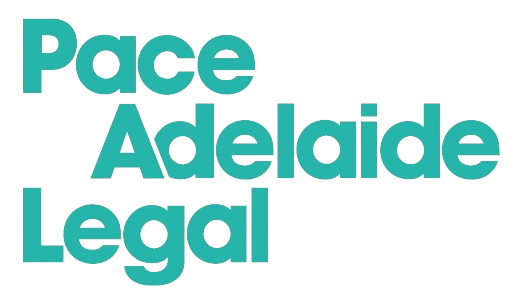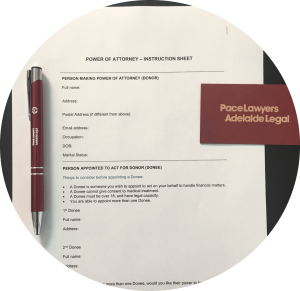Registering Relationships and Estate Planning
Why Register your Relationship?
Registering your relationship has a direct affect on your estate planning and your partners ability to carry out your wishes in relation to your estate.
Estate Planning & Registered Relationships
The process of registering your relationship means that accessing your superannuation in the event of your death will be made easier for your partner, as registration will assist in establishing a relationship of shared life and dependency. If you die without an existing Will, someone will be appointed to administer your estate. In the absence of a nominated Executor, the Court will need to rely upon supporting evidence to meet the criteria necessary to establish your relationship.
The Relationship Register Act
The Relationships Register Act 2016 was a significant legislative change for South Australia, which came into effect in August 2017. The Act makes provision for the registration of certain relationships, so as to provide for the legal recognition of persons in a relationship as a couple, irrespective of their sex or gender identity. Any couple over the age of 18, irrespective of their gender identity or sex, are eligible to register their relationship under the Act.
What If I Choose Not To Register My Relationship?
If you choose not to register your relationship, it may only be recognised in certain circumstances. For example, in matters such as property disputes, matters involving inadequate provisions of a Will and in the event that there is no Will, there are stringent time limits and eligibility criteria that apply in the event of a dispute. By registering your relationship, you will fall under the definition of a “domestic partner” per the Family Relationships Act 1975 (SA), which strengthens your position in such matters.
Can I Revoke My Registered Relationship?
Like marriage, a registered relationship will automatically revoke a Will, unless specifically stated in the Will that it was made ‘in contemplation of a registered relationship’. Similarly to a divorce, one or both parties can apply to revoke their registered relationship. If you have your registration revoked, it will have the same effect on your Will as if you were to divorce, in that it will revoke your partner as an Executor and beneficiary of the Will.
Revocation and Powers of Attorney
What is a Power of Attorney?
A Power of Attorney (POA) is created when one person (called the principal, donor or appointor) authorises another person (called the attorney, appointee or donee) to act on behalf of him or her in regard to financial matters.
When Would I Need To Appoint An attorney?
You may require a Power of Attorney to manage your financial affairs if (for example) you leave the country for an extended period of time or have a scheduled hospital stay.
What Things Are Covered By A Power Of Attorney?
Medical decisions are not covered by the POA but rather by way of an Advanced Care Directive.
In South Australia there are two types of Power of Attorney. So, what are they?
General Power Of Attorney
The first is a General Power of Attorney, which is valid so long as the donor (the person authorising the other to act) is capable of acting for themselves. This type of document is created to cover a specific period of time, or set of circumstances and may have an end date.
Note: If the POA allows for the appointee to deal with real estate in SA, it will need to be registered with the Land Titles Office.
Enduring Power Of Attorney
The second type of POA, is an Enduring Power of Attorney. This will remain valid in the event that the donor becomes mentally incompetent.
When Does A Power Of Attorney Become Invalid?
Both types become invalid when the donor dies and the Will then takes over. Often your appointed attorney will also be the beneficiary of your Will.
Who Should I Choose As My Attorney?
Who you choose to appoint as your attorney is up to you. You may choose to have several appointees, in which case you will need to decide whether they are appointed ‘jointly’ and/or ‘severally’.
Joint Power Of Attorney – How Does This Work?
A joint POA requires any decision to be agreed upon by all attorneys prior to taking any action. However, if you appoint in a ‘joint and several’ capacity, this allows for attorneys to act together, or individually, to make decisions on your behalf. An appointed attorney is obliged to act in good faith and in the best interests of the donor at all times.
How do I Revoke a Power of Attorney?
If you wish to revoke your Power of Attorney you can do so at any time. You do this by notifying your appointee in writing. The notification must specify that his or her power as an Attorney has ended. If your Power of Attorney has been registered, then you must also register the revocation. If you fail to revoke your POA, your appointee(s) will still have the power to make decisions on your behalf. Therefore in the event of separation, or any other discontinuance of relationship with your attorney, it is vitally important that you revoke the power. If necessary you can appoint another attorney.
Can A Power Of Attorney Become Invalid?
In circumstances of mental incompetence, the donor cannot revoke an Enduring Power of Attorney. However, a General Power of Attorney will automatically be revoked once the donor is deemed to be incompetent, and any actions taken under it after that time are invalid.
Can I Contest A will?
In the event that you need to contest a Will, there is no need to obtain a declaration as to whether you are an ‘eligible person’ per the Inheritance (Family Provision) Act 1972; as a domestic partner of the deceased you can bring a claim by right.
If a person dies without a Will, the intestacy rules will apply. The distribution of the estate will then depend on whether there is a domestic partner and/or children.
Wills and Marriage
A Will is valid if executed in accordance with the Wills Act 1936. However there are circumstances in which the validity of a Will may be affected.
If a person dies without a Will, the intestacy rules will apply. The distribution of the estate will then depend on whether there is a domestic partner and/or children.
Marriage
The event of marriage will invalidate any existing Will entirely. The only circumstance in which marriage will not render a Will void, is if the Will states that it is made ‘in contemplation of marriage’. Without the creation of a new Will, your marriage may result in an intestate estate, which could involve a large portion (or the entirety) of your estate being distributed to your new spouse. Whilst this may not be a problem for some, any pre-existing beneficiaries would be affected and to protect those interests, it is important that a new Will is drafted.
Separation
Marital separation does not automatically void an existing Will, meaning it will remain valid and effective until revoked by a new Will. If you do not draft a first Will or update an existing Will during a marital separation and subsequently die before doing so, a large portion of your estate may be inherited by your estranged spouse.
Divorce
In the event of divorce, any beneficial interest in favour of the former spouse will be revoked. Divorce revokes your former spouse as Executor of your Will and will also revoke any gift(s) left to them, unless the Court believes that you actually intended to leave your former spouse a gift. Whilst these provisions will apply in the event of a divorce, it is best practice and sound advice that you update your Will to reflect your change of circumstances without delay.
Wills and De Facto Relationships
If your domestic partner has died and left a Will that does not take you into consideration, or does not adequately provide for you, then you may be eligible to challenge the Will. If you are in a de facto relationship with the deceased at the time of death, you may be entitled to make a claim in respect of their estate.
In any event, and whether there is a Will or not, you must be deemed a ‘domestic partner’ of the deceased. To qualify as a domestic partner you must either:
a) Be a person who was in a registered relationship with the deceased; or
b) Be a person declared as a domestic partner under the Family Relationships Act 1975
If you have any concerns or questions regarding relationships and estate planning, please contact one of our experienced Adelaide Legal family lawyers on 08 8410 9294 or make an appointment to come in for a chat at your convenience.

